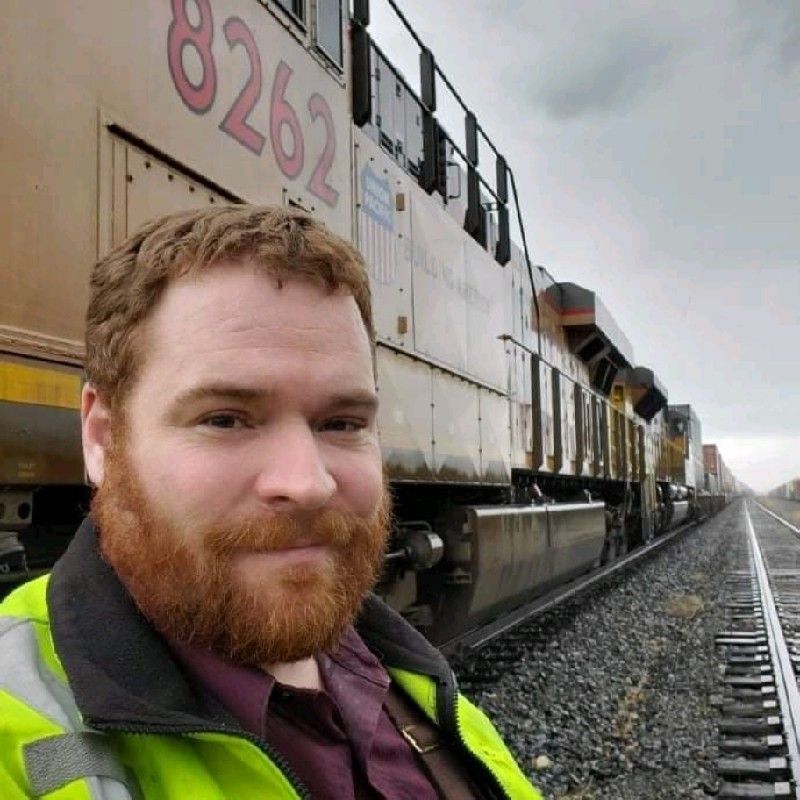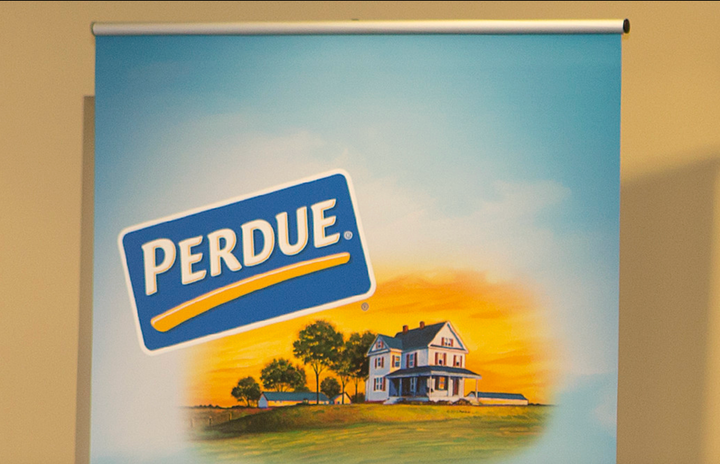Railroad Whistleblower Says Union Pacific Fired Him After Posting TikTok Videos

The following is an exclusive for paid subscribers of The Dissenter. Exclusive content is shared with all readers during July. If you appreciate what you read, become a subscriber with this 60-day free trial.
A former Union Pacific locomotive engineer says he was the target of whistleblower retaliation, which resulted in termination from his job.
Michael Paul Lindsey has worked in the railroad industry for 17 years. He lives in Pocatello, Idaho. In an interview with Maximillian Alvarez for The Real News, Lindsey described what happened when he was fired by Union Pacific, the second largest railroad corporation in the United States.
On February 24, Lindsey entered the yard office. He was informed that Omaha [Union Pacific headquarters] had called. He was to be escorted off the property.
Lindsey’s firing came right after the train explosion that devastated East Palestine. Another train derailment also occurred in Southern California, “where an excessive tonnage train that had broken in half got away and derailed at 145 miles an hour.”
Union Pacific allegedly conducted three investigations into Lindsey that stemmed from five TikTok videos that he posted. They then conducted two more investigations—one because he called himself a “slave to their company,” and they interpreted that as a “racial slur,” and one because of another TikTok video that he posted on a Union Pacific train that derailed in Cima Hill, California.
“It’s unprecedented, and it’s unheard of in the industry. I don’t know anyone in the industry that’s dealt with the union and formal investigations that has ever seen someone investigated three times in regard to the same exact charge,” Lindsey maintained.
According to Lindsey, the railroad industry has “blackballed” him.
“I’ve applied to multiple positions on Amtrak since then as a qualified engineer with a lot of good years of service. And I’m not getting any response from anybody because they blackballed me by essentially saying that, hey, if you look at my service record now, and now it shows that apparently I use racial slurs for referring to calling myself a slave.”
The East Palestine disaster occurred partly because Norfolk Southern had hot box detectors on their trains set to trigger an alert for inspection only if the bearing reached over 170 degrees “above ambient temperature.”
Lindsey recorded a TikTok video that addressed how railroad companies were silencing hot box detectors.
As Lindsey explained, “a hot box detector is a detector in the track every 10, 15, sometimes 20 miles. And as the train goes by, it measures the temperature on the bearings and determines whether the bearing is overheating.”
“It always sends a message over the radio at the end of the train after it goes by, gives a milepost, no defects, usually an actual count, a speed, and sometimes the ambient temperature outside. And it gives that information so the crew is constantly aware of what’s going on.”
Lindsey continued, “What has come out with this East Palestine thing, the biggest thing that they’re wanting everyone to shut up about, is that hot box detectors do not have a fixed standard," and, "There’s no standard as to how they need to be calibrated.”
“So it was people like me talking about this that got people really looking into that and wanting to talk about why the hot box detectors were being silenced.”
If an alarm for a “high temperature bearing went off,” Lindsey said that alert would go to Union Pacific’s headquarters for review rather than the crew.
“That would be like being on a plane, and they say there’s an engine alarm that goes off, and it goes to the airline headquarters and they determine whether they need to tell the pilots about it. It’s ridiculous,” Lindsey declared.
By creating a climate where railroad workers fear the consequences of speaking out, the industry makes it harder for journalists to uncover their corruption.
Alvarez recalled, "All I heard from workers was like, I’ll talk to you off the record, but you cannot use my name. For the love of God, please don’t tell anyone that you spoke to me because I will get fired."
"It was like this is an industry that is so tightly controlled from the top down, that the rank-and-file voices are being actively silenced, and that the public is not aware of the danger it is in because of that regime of silencing."
Lindsey defied this regime and wrote op-eds, agreed to interviews about railroad union negotiations, and spoke out in videos posted to TikTok.
Four corporations, including Union Pacific, control virtually all of the United States’ railways. They effectively operate as monopolies.
Kari Lydersen, a journalist for In These Times Magazine, made the case for nationalizing the railroads. What Lydersen outlined is why whistleblowers like Lindsey are needed.
In 2021, BNSF and Union Pacific reported record profits of $6.5 billion and $6 billion, respectively, while Norfolk Southern reported a record $4.45 billion, and CSX notched $3.8 billion. The profit is doled out to highly paid executives and shareholders with too little invested back into operations and infrastructure, as many workers and some industry experts see it. The imbalance has helped make the case for more decision-making power for railroad workers and a greater oversight role for the public. Railroad workers who support nationalization would like to see workers in direct leadership positions, and think removing the profit motive would translate to better working conditions.
In 2022, a jury awarded $1.25 million to railroad whistleblower Michael Elliott, who alleged that BNSF retaliated against him for reporting safety violations to the company and the U.S. Railroad Administration.
Dennis Kautzmann, the road foreman of engines and a BNSF official, followed Elliott while he was off-duty and jumped on the hood of Elliott’s car while he was leaving after work. Kautzmann falsely alleged that Elliott assaulted him. Elliott was acquitted at trial, but BNSF seized upon the incident to to fire him from his job as a locomotive engineer.
The U.S. Labor Department ordered CSX to pay two railroad workers nearly $700,000 in November 2017. The workers “reported a blue flag that signaled their train could not move safely. For their actions, CSX Transportation Inc. pulled them from the job and later fired them, both actions found to be illegal.”
It was the third railroad whistleblower case in a span of 10 months, where the Labor Department validated the whistleblower’s claims.
Whistleblower retaliation happens quite often because railroad company executives have to conceal their constant negligence, and retaliation may also mean a loss of health insurance.
“I have an extension program where it goes on for a bit, but it’ll eventually run out,” Lindsey shared. “It goes back to my comment on why I felt that I was a slave of the railroad. So just a little reminder to everyone, where we live in a country where if you’re employed by one of these big companies that likes to engage in dubious activity and you say anything about them, they can literally kill you.”
“I’ve got obstructive sleep apnea from my time at the railroad, and I’m on blood pressure medication now, and they’re taking my health insurance away. So, all because I decided to speak out against them,” Lindsey concluded.


Comments ()